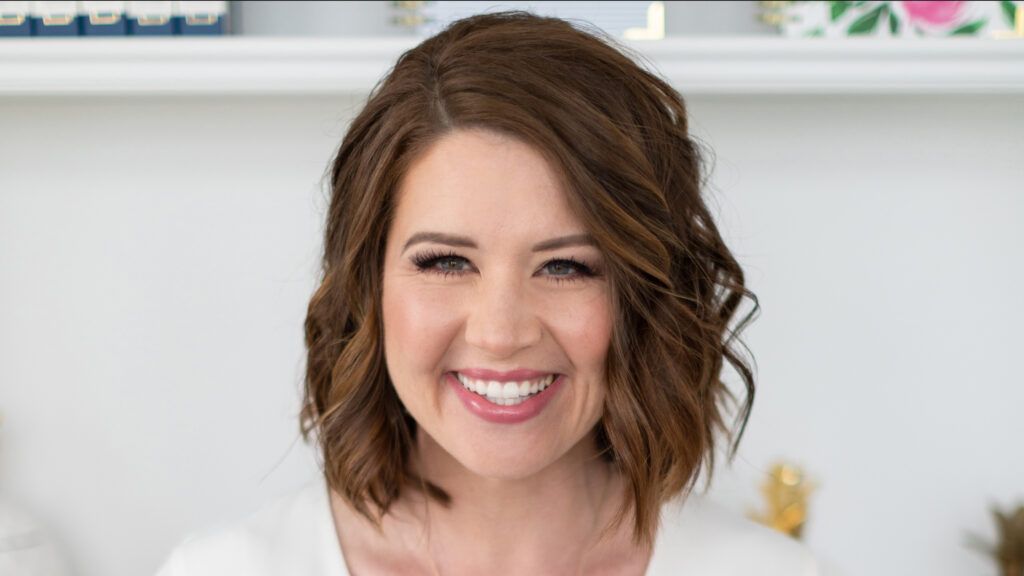Emily Ley understands the power of the internet. More than a decade ago, Ley launched an online stationary business, using blogs and Instagram to promote her wedding invitations and, eventually, out of her own desire for more organizational tools, a planner.
Her business took off and Ley became known for her Simplified planner as well as her nonfiction books. Her latest book, When Less Becomes More, grew out of a time of extreme stress and overwhelm in her life, Ley said. Her business was excelling, but she found herself burned out and struggling to enjoy life
“It is a very tender story of someone emerging from an over connected, over stretched, overwhelming lifestyle, to discover that there are really small consistent changes that we can make in lots of areas of life that really make a big difference,” Ley told Guideposts.org.
The book chronicles Ley’s quest to regain control of her life, in large part by rethinking her relationship to technology and her struggle to unplug. She listened to audiobooks while blow drying her hair, took conference calls while driving to pick her kids up from school. She was constantly answering emails. The nonstop nature of it was exhausting—a phenomenon she thinks she’s not alone in experiencing.
“Women all over the world are just tired,” Ley said. “We’re doing so many things. We’re caregivers to so many people…And often we put ourselves last, and we believe that we’re victims [of] our circumstances, and so we aren’t taking control away from all of the things modern life has given us.”
When Ley made a list of ways to simplify her own life, technology was near the top. Here’s some of her best tips for decluttering your digital life.
1. Start with a 30-day reset
The first thing Ley did when she decided to change her relationship with technology was to cut it off completely.
“I decided to unplug as much as I could for 30 days,” Ley said. “I got off of social media for 30 days, backed off of email as much as I could for 30 days.”
While email and social media are required for many jobs (including her own), Ley did her best to cut back where she could. She announced on social media that she would be taking a break and told her employees, and her children’s school, that they could reach her by phone.
2. Delete apps and turn off notifications
After her 30 day fast, Ley was eager to return to some forms of technology, but this time she wanted to be more intentional about how and who she connected with online. To prevent herself from mindlessly scrolling, she deleted time-sucking apps, such as Instagram, from her phone.
“I took it all off my phone,” Ley said.
For apps that she needed on her mobile device—email for instance—Ley turned off notifications.
“People think you have to have that red dot staring you in the face, you don’t,” Ley said. “The dings and chirps and buzzes—[turn them off].”
3. Use a regular alarm clock
A simple way to start your day technology-free, and get devices out of your sleep area, is to use an alarm clock to wake up.
“It sounds so elementary,” Ley said. “But [using an alarm clock] meant that when I woke up in the morning, I wasn’t reaching straight for the phone to see who had emailed me in the middle of the night.”
4. Batch schedule
To lessen her tendency to check email and social media mindlessly, Ley adopted a batch work method. She now checks her email at three pre-set times each day instead of responding to notifications in real time. Her employees know that if they need to contact her immediately they can always call.
5. Purge your social media feeds
As she became more intentional about technology, Ley decided to get serious about who she followed.
“I realized that I was filling my head with information that maybe I didn’t really need, especially when I felt overwhelmed,” Ley said.
She did several purges of her social feeds, unfollowing accounts that didn’t make her feel great or even friends who she would rather catch up with in person. As a result, she found herself spending less time on her phone.
Things didn’t change overnight, but with time and intentionality, Ley has found more peace and calm in the midst of her busy life. Setting boundaries with technology and letting people know about her new strategies has helped prevent Ley from returning to her old habits.
“It was life changing. Not only for me, but for my kids,” Ley said. “I realized that these [technologies] are good things in our lives, they just have to be managed with an actual strategy [and boundaries].”







